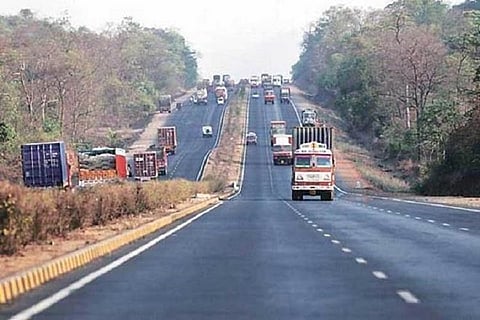

The Rs.10,000 crore Chennai-Salem eight lane greenfield expressway project can be executed by the government as the Supreme Court on Tuesday upheld the notification issued for acquiring land. The court in its verdict, said that the Indian government and the National Highways authority of India can issue notification for the land they want to acquire for the project. Petitioners can voice their objections at a later stage and any environmental and forest clearances can then be challenged in appropriate forums.
The Supreme Court noted that as per the National Highways Act, 1956, a prior environmental or forest clearance is not required by the government before expressing intention to acquire land. The clearance, according to the court, is only necessary “before commencing the actual work or executing the proposed work/project” or after the land is vested in the NHAI. It has also said that declaration of a previously greenfield stretch as a national highway is valid. The third important point the court has made is that any change of alignment- as was done in this case- can be done without environmental or forest clearances at this stage.
The court pointed out that Section 3(A) of the 1956 Act that gave the Central government the power to declare its intention to acquire land by notification in the official gazette if it is satisfied that the land is required for the building, maintenance, management or operation of a national highway.
This is in direct contradiction to the Madras High Court’s judgement in April 2018, where a division bench of Justices TS Sivagnanam and V Bhavani Subbaroyan quashed the acquisition proceedings after holding that an environmental clearance was mandatory for the project. This judgement was in regard to a batch of cases filed by advocates, farmers and politicians against the highway. PMK youth secretary Anbumani Ramadoss was also amongst those who moved the court.
The court has also disagreed with the petitioners and held that an authorised person entering a piece of land to conduct survey, feasibility etc is a one-time activity that does not intend any exploitation, and therefore no prior clearance is needed.
The Supreme Court however maintained that it was not expressing any opinion on the correctness and validity of the permissions/clearances accorded by the competent authorities under the environment and forest laws.
“It would be open to the affected persons to question the validity thereof on grounds, as may be permissible, before the appropriate forum. All contentions available to parties in that regard are left open," said the bench comprising Justices A M Khanwilkar and B R Gavai.
The top court further added that paragraph 106 of the High Court judgement regarding reversal of entries in the revenue records which stood mutated following the acquisition notification, will be maintained. Mutation entries are entries in revenue records that indicate the transfer of title of a property. The Supreme Court agreed with the High Court’s earlier judgement that the records cannot be changed until the acquisition process was completed. Earlier the government had mutated the record after passing a notification on their intent to acquire the land.
The NHAI had argued in Supreme Court that the Bharatmala Pariyojana was a project of ‘national importance’ and hence did not require prior environmental clearance and the SC has agreed with this view. The 277-kilometre project, which is a part of the Bharatmala Pariyojana scheme, aims to cut the travel time between Salem and Chennai to less than three hours. Stiff opposition has however arisen from various quarters including the farmers whose lands were about to be acquired by the state government for the project. The project, according to the plan, will cut cross reserve forest and water bodies as well.
The Supreme Court in turn stated that if the government had to follow comprehensive procedure under environmental laws and forest laws to declare any land as a national highway, such approach would be counterproductive and the functioning of the departments responsible for timely execution of such projects would be completely paralysed and depend solely on the outcome of the processes under the environmental laws or forest laws, as the case may be.
The Apex court finally came down on the High Court for judicial interference in the acquisition matter. The order stated that the High Court had completely glossed over these crucial aspects and entered into the domain of sufficiency and adequacy of material including the appropriateness of the route approved by the competent authority.
“Such enquiry, in exercise of judicial review, is forbidden. Furthermore, the High Court, despite noting that judicial interference in acquisition matters is limited, went on to interfere in the guise of extraordinary circumstances obtained in this case. On a thorough perusal, the impugned judgment does not reveal any just circumstance for invoking the judicial review jurisdiction,” the Supreme Court stated.